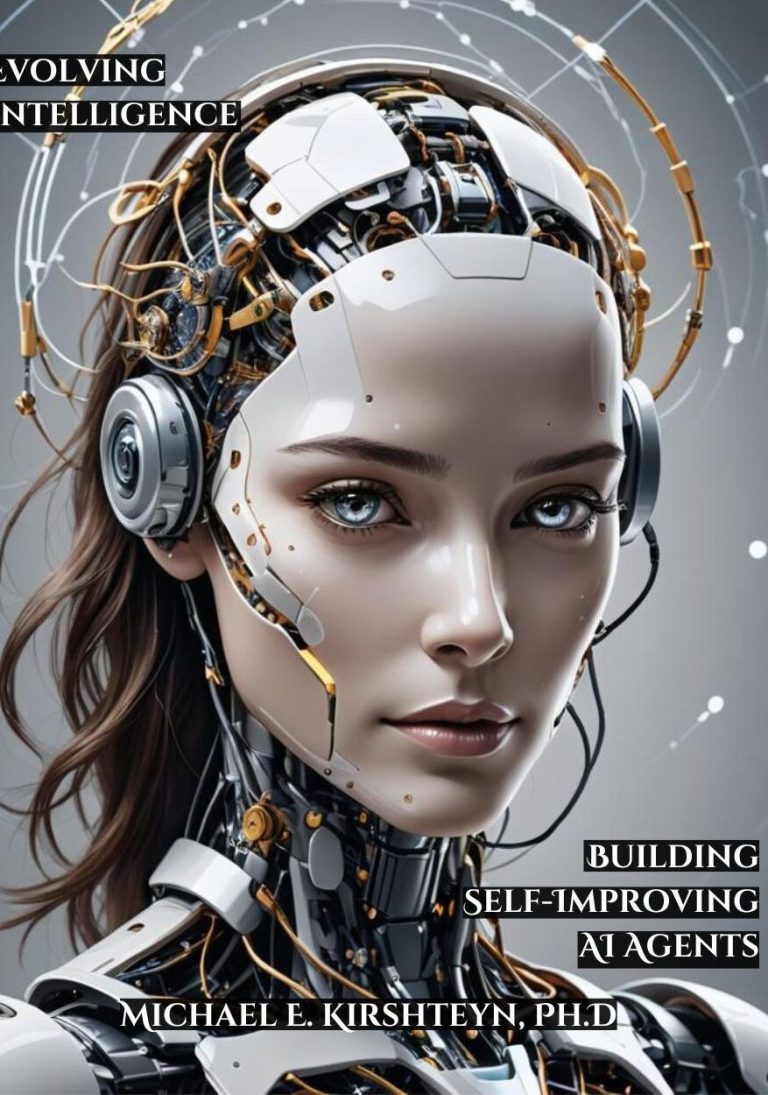Evolving Intelligence
Building Self-Improving AI Agents
This book offers an in-depth examination of self-improving artificial intelligence (AI) systems, a transformative area of research that holds the potential to redefine the boundaries of machine learning and automation. As AI technologies continue to advance, the ability of systems to autonomously enhance their performance and adapt to new challenges is becoming increasingly critical.
The book begins with a foundational overview of artificial intelligence and machine learning, introducing key concepts and terminology that will be explored in greater depth. Readers will gain insights into the various learning paradigms, including supervised, unsupervised, and reinforcement learning, as well as the architectures that underpin self-improving systems.
Next, the text delves into the mechanisms that enable self-improvement, such as feedback loops, transfer learning, and continuous learning strategies. Real-world applications are highlighted through case studies that demonstrate how self-improving AI is being implemented in diverse fields, including healthcare, finance, robotics, and natural language processing.
The book also addresses the technical challenges associated with developing self-improving AI, such as scalability, data privacy, and the risk of catastrophic forgetting. It emphasizes the importance of ethical considerations, exploring issues of bias, fairness, and accountability as AI systems become more autonomous.
In addition to discussing current advancements, the book looks ahead to future trends and potential breakthroughs in self-improving AI. It considers the implications of these technologies for various sectors and the broader societal impact, including the potential for job displacement and the need for regulatory frameworks.
Throughout the book, the author encourages critical thinking and reflection on the ethical and societal dimensions of self-improving AI. By providing a balanced perspective on the promises and challenges of this technology, the book aims to equip readers with the knowledge and tools necessary to engage with the evolving landscape of artificial intelligence.
Ultimately, this work serves as a comprehensive resource for researchers, practitioners, students, and policymakers interested in understanding the significance of self-improving AI systems and their potential to shape the future of technology and society. Through its exploration of both the technical and ethical aspects of AI, the book aspires to foster informed discussions about the development and deployment of intelligent systems that can learn, adapt, and improve over time.
©Copyright. All rights reserved.
We need your consent to load the translations
We use a third-party service to translate the website content that may collect data about your activity. Please review the details in the privacy policy and accept the service to view the translations.
